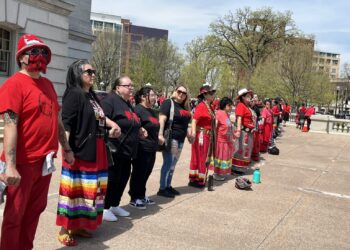On Wednesday, President Biden declared that his administration has allocated over $2 billion in direct payments to Black and other minority farmers who have suffered discrimination from the U.S. Department of Agriculture.
The USDA has approved payments ranging from $10,000 to $500,000 for over 23,000 farmers. Additionally, about 20,000 individuals who intended to begin a farm and were not granted a USDA loan were provided with payments between $3,500 and $6,000.
The majority of the payments were directed toward farmers located in Mississippi but Alabama.
During a press briefing, USDA Secretary Tom Vilsack emphasized that the aid being provided is not intended to compensate for any losses or pain experienced, but rather serves as an acknowledgment by the department.
For many years, black farmers have faced systemic discrimination from the USDA when it comes to loan processing. These farmers have experienced loan approval at a slower pace than white farmers, and in some cases, the USDA has been known to foreclose quicker on loans taken by Black farmers. This pattern of discrimination has persisted for a long time and has contributed to the struggles that these farmers face in their efforts to build a sustainable livelihood.
According to John Boyd Jr., the founder and president of the National Black Farmers Association, while the aid is certainly beneficial, it falls short of meeting the needs of farmers.
Boyd expressed his perspective on the situation by stating that it is akin to using a bandage to treat someone who requires open-heart surgery. He emphasized that acquiring their land is the ultimate goal, leaving no room for ambiguity.
Despite Congress approving $5 billion for a debt relief program aimed at helping Black farmers, Boyd is currently facing a federal lawsuit in his fight to secure 120% debt relief. The program was included in the COVID-19 stimulus package worth $1.9 trillion, yet Boyd’s legal battle continues.
However, the anticipated funds never materialized. Many white farmers across various states filed legal suits asserting that their exclusion from the program infringed on their constitutional rights. As a result of these legal challenges, judges promptly put a stop to the program shortly after it was enacted.
Congress made a strategic move to avoid a prolonged court battle that could have resulted in delayed payments to farmers. To accomplish this, the law was revised, and a broader group of farmers were given financial assistance. Under the new law, $3.1 billion was allocated to provide aid to farmers who were struggling to repay their USDA-backed loans. Additionally, $2.2 billion was set aside to compensate farmers who were subjected to discrimination by the agency.
According to Wardell Carter, who belongs to the black community, his entire farming family has been deprived of even the opportunity to apply for a loan ever since his father purchased 85 acres (34.4 hectares) of Mississippi land in 1939. He further added that the loan officers at USDA would rudely dismiss them without giving any reason. In instances where Black farmers were persistent, Carter claimed that the officers would take the extreme step of sending the police to their homes.
Carter’s family was unable to purchase a tractor without a loan. As a result, they had to rely on a horse and mule for years, which limited their farming capabilities to just 40 acres (16.2 hectares) of their property. This significantly impacted their profits.
Carter revealed that when they were finally able to secure a bank loan for purchasing a tractor, the interest rate they were charged was a whopping 100%.
According to Boyd, he has personally witnessed the destruction of his loan applications, as well as being subjected to racial slurs and being asked to leave meetings with loan officers so they could speak exclusively with white farmers.
Boyd pointed out that discrimination is still prevalent and affecting people in obvious and direct ways. She shared a personal anecdote where a county representative, who was responsible for farm loans, spat tobacco juice on her during a loan session. The incident was a clear example of the kind of discrimination that people are still experiencing today.
As he reaches the age of 65, Carter has come to the realization that he is too old to farm his land. However, he remains committed to ensuring that his property remains in top condition. With the financial assistance from the USDA program, Carter intends to use the funds to prepare his land for his nephew to take over farming duties. In fact, Carter and his family are even considering chipping in to purchase a tractor for his nephew to use on the land.
Every weekday morning, over 125,000 readers rely on CEO Daily for valuable insights from the world of business, including from inside the C-suite. This reliable source offers key context for the news that leaders need to know to stay informed.




